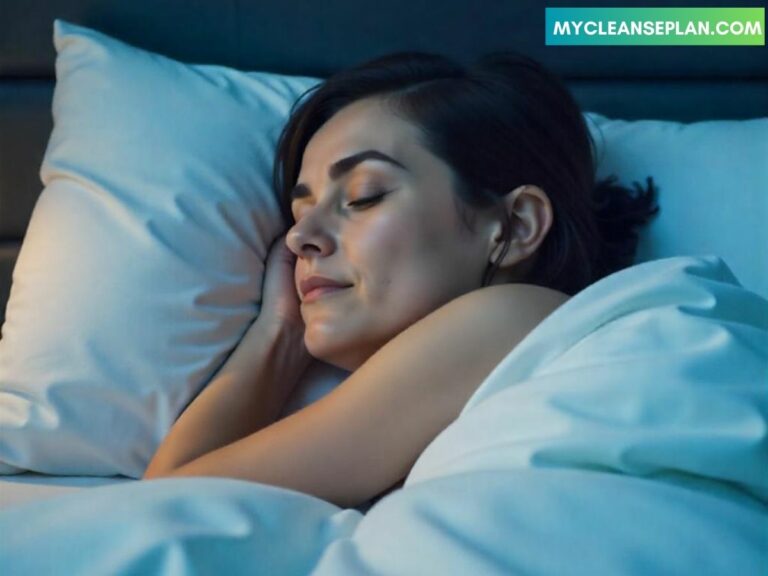How to Use Oura Ring for Sleep Optimization?
I’ve struggled with sleep, lying awake and feeling tired the next day. That’s why I’m excited to share how your Oura Ring can change the game for better sleep.
The Oura Ring gives you insights into your sleep patterns. You can use this data to improve your sleep quality. By tracking your sleep, you can wake up feeling refreshed and ready to go.
Key Takeaways

Understanding the Oura Ring and Its Sleep Tracking Capabilities

The Oura Ring uses advanced sensors and algorithms to track sleep. It’s not just a simple sleep tracker. It’s a tool that gives detailed insights into sleep patterns, helping users sleep better.
https://gigasecurehome.com/blink-stuck-on-connecting-to-blink-serve
What Makes Oura Ring Different from Other Sleep Trackers
The Oura Ring is unique because of its advanced technology and algorithms. It measures sleep metrics accurately, unlike other trackers that only track duration. Its design is also comfortable for wearing all night.
Key features that differentiate the Oura Ring include:
- Advanced heart rate monitoring
- Body temperature tracking
- Personalized recommendations based on sleep data
Key Sleep Metrics the Oura Ring Measures
The Oura Ring tracks various sleep metrics for a complete view of sleep health. It measures sleep duration, stages (deep, REM, and light), and heart rate variability.
| Sleep Metric | Description |
|---|---|
| Sleep Duration | Total time spent asleep |
| Deep Sleep | Stage of sleep important for physical recovery |
| REM Sleep | Stage linked to mental recovery and memory |
| Light Sleep | Stage that helps transition from wakefulness to deeper sleep |

Getting Started with Your Oura Ring
Starting with your Oura Ring is easy. Just follow a few steps to set it up and wear it right. This will help you get the most from your device.
Setting Up Your Ring and App
First, set up your Oura Ring and download the app. The app will help you pair your ring with your phone and set up your profile. It’s important to enter your info correctly. This way, the app can give you better insights into your sleep.
Key steps in setting up your Oura Ring include:
- Downloading and installing the Oura app
- Pairing your ring with your smartphone via Bluetooth
- Completing your user profile with accurate demographic and health information

https://gigasecurehome.com/blink-sync-module-2-blinking-green-light
Wearing Your Ring Correctly for Optimal Tracking
Wearing your Oura Ring right is key for good sleep tracking. Make sure it’s snug but not too tight. This keeps the device working well.
Wear the ring on your finger, with sensors facing your palm. It’s best to wear it on the same finger every time. This ensures consistent data.
By following these tips, you can start tracking your sleep well. You’ll get valuable insights into your sleep patterns. This helps you improve your sleep quality with Oura Ring tips.
Decoding Your Sleep Score
Understanding your sleep score is key to better sleep with Oura Ring. It shows how well you sleep.

The Oura Ring looks at several things to give you a sleep score. It checks how long you sleep, how well you sleep, and the different sleep stages. Knowing these helps you see where you can get better.
Understanding the Components of Your Sleep Score
Your sleep score comes from different sleep metrics. Duration is how long you sleep. Efficiency is how much of that time is actually sleep. It also tracks your sleep stages, like deep, REM, and light sleep.
What Makes a “Good” vs. “Poor” Sleep Score
A “good” sleep score means you had a restful night. You slept long enough and had the right sleep stages. But, a “poor” score might mean your sleep was broken or not deep enough. Looking at your score helps you know how to sleep better.
Using your Oura Ring data, you can make changes to improve your sleep score. This leads to better rest and health.
How to Use Oura Ring for Sleep Optimization
To get the most out of your Oura Ring, it’s key to understand how to use its data for better sleep. This way, you can make smart choices about your sleep habits and environment.

Creating a Sleep Optimization Plan with Oura Data
Creating a sleep plan starts with looking at the data from your Oura Ring. First, check your sleep score and what affects it, like how long you sleep and how well you sleep. Look for patterns or problems that might be hurting your sleep quality.
Key areas to focus on include:
- Consistency of sleep schedule
- Time spent in different sleep stages (deep, REM, light)
- Factors disrupting sleep, such as heart rate variability
| Sleep Metric | Target | Current Status |
|---|---|---|
| Sleep Duration | 7-9 hours | 6 hours 30 minutes |
| Sleep Efficiency | 85%+ | 80% |
| REM Sleep | 20% of total sleep | 15% |
Setting Realistic Sleep Goals
After spotting areas to improve, it’s important to set realistic sleep goals. This might mean slowly changing your bedtime to get a regular sleep schedule. Or, it could be about starting a calming pre-sleep routine to improve your sleep quality.
Tips for setting achievable goals:
- Start with small, incremental changes
- Monitor your progress using the Oura Ring app
- Adjust your goals based on the insights you gain
By following these steps and using your Oura Ring’s data, you can create a plan that’s just right for you to sleep better.
Interpreting Your Sleep Stages Data
Understanding your sleep stages is key to better rest with your Oura Ring. The data from your ring helps you make smart choices about your sleep. This leads to better sleep quality overall.

Understanding Deep, REM, and Light Sleep
Your Oura Ring tracks three main sleep stages: deep, REM, and light. Deep sleep is key for physical recovery. REM sleep is vital for mental health. Light sleep is important for a smooth transition between stages.
Deep sleep helps repair tissues and build muscle. REM sleep is when the brain processes memories. Knowing the balance between these stages helps you see where to improve.
Optimizing Your Sleep Cycle Based on Oura Insights
By looking at your sleep stages data, you can make changes to better your sleep. For example, if deep sleep is low, try relaxing activities before bed. If REM sleep is off, aim for a consistent sleep schedule.
Use your Oura Ring insights to try different sleep strategies. This could mean a cooler, darker room or no screens before bed.
By making changes based on your data, you can improve sleep with Oura Ring through smart decisions.
Using Oura’s Readiness Score to Improve Sleep Quality
Oura’s Readiness Score is a key tool for better sleep. It shows how ready your body is for the day. It’s closely tied to how well you sleep.
How Readiness and Sleep Are Connected
The Readiness Score looks at heart rate, body temperature, and sleep. Oura uses these to show how well-rested you are. A high score means you’re ready for the day. A low score might mean you need more rest.
A key aspect of the Readiness Score is its ability to reflect the quality of your sleep. Oura checks your sleep and other health signs. It finds problems that might hurt your sleep.

| Readiness Score Range | Sleep Quality Indicator | Recommended Action |
|---|---|---|
| 80-100 | Excellent sleep quality | Maintain current sleep habits |
| 60-79 | Good sleep quality | Make minor adjustments to sleep routine |
| 0-59 | Poor sleep quality | Implement significant changes to sleep habits |
Adjusting Your Day Based on Morning Readiness
Use your Readiness Score to plan your day. If it’s high, you’re ready for tough tasks or exercise. If it’s low, rest and recovery are key.
Adjusting your day to match your body’s needs can improve sleep and overall health.
Lifestyle Modifications Based on Oura Ring Data
The Oura Ring helps you discover how to sleep better by making smart changes. It shows how your daily habits affect your sleep. This way, you can improve your rest quality.

Exercise Timing and Its Impact on Sleep Quality
When you exercise can really change how well you sleep. Studies show that working out too close to bedtime can make it hard to fall asleep. Your Oura Ring data can help find the best time for exercise to improve your sleep.
For example, exercising in the morning can help your body get ready for sleep at night. A sleep expert says, “Finding the right balance is key. Try different exercise times and see how they affect your sleep.”
Nutrition and Hydration Strategies for Better Sleep
Your diet and how much water you drink are important for sleep. The Oura Ring shows how these factors impact your sleep. Eating big meals or drinking caffeine too close to bedtime can mess with your sleep.
By changing your eating and drinking habits based on your Oura Ring data, you can sleep better. Here are some tips:
- Avoid heavy meals close to bedtime
- Limit caffeine intake in the hours leading up to sleep
- Stay hydrated throughout the day
Stress Management Techniques Supported by Oura Insights
Stress can make it hard to sleep well. The Oura Ring’s Readiness Score helps you see your stress levels. Activities like meditation, deep breathing, or yoga can help manage stress.
By adding these practices to your day, as suggested by your Oura Ring, you can lower stress. This can help you sleep better.
“Mindfulness and relaxation techniques can greatly improve sleep by reducing stress and helping you relax,” a wellness expert notes.
Creating Effective Sleep Routines with Oura Ring
Use your Oura Ring to improve your sleep. It shows you how you sleep, helping you change your habits. This way, you can sleep better.

Establishing Consistent Sleep and Wake Times
Being consistent is important for good sleep. Your Oura Ring shows the best times to sleep and wake. This helps your body get into a rhythm for better sleep.
As “Consistency is key to a good night’s sleep”, a regular sleep schedule helps your body adjust. The Oura Ring tracks your sleep to find the best times for you.
Developing Pre-Sleep Rituals Based on Your Data
Pre-sleep routines can greatly improve your sleep. Your Oura Ring data shows what relaxes you before bed. A calming routine tells your body it’s time to sleep, making your sleep better.
- Dimming the lights
- Reading a book
- Practicing gentle stretches
Try different activities to see what works for you. Use your Oura Ring to see how well your routines work.
Morning Routines That Complement Your Sleep Cycles
A good morning routine can help your day start well. Your Oura Ring data helps find the best wake time. It also shows your sleep stages, helping plan your morning.
A morning routine that matches your sleep can make you feel refreshed. As
“The way you start your day sets the tone for the rest of it”
, a morning routine that fits your sleep can improve your day.
Tracking Your Sleep Progress Over Time
As I keep working on better sleep with the Oura Ring, tracking my progress is key. I use the ring’s trend analysis to see how my sleep is changing.
The Oura Ring gives me a detailed look at my sleep data. It helps me spot patterns and trends that might not be clear at first. This way, I can see where I’m getting better and where I need to focus more.
Using Oura’s Trend Analysis Features
Oura’s trend analysis helps me understand my sleep patterns over time. By looking at my sleep data, I can see how things like my sleep schedule, environment, and daily activities affect my rest.
Key features of Oura’s trend analysis include:
- Long-term sleep data tracking
- Personalized insights based on my sleep patterns
- Comparative analysis to help me understand my progress

Identifying Patterns and Making Adjustments
By analyzing my sleep data, I can spot patterns that impact my sleep quality. For example, I might find that my sleep is better when I exercise in the morning. Or that I’m more restless when I have caffeine late in the day.
With this info, I can make specific changes to my routine to improve my sleep. Whether it’s adjusting my exercise schedule, changing my diet, or practicing relaxation techniques, the Oura Ring’s data helps me make smart choices for better sleep with Oura Ring.
FAQ Of How to Use Oura Ring for Sleep Optimization?
How do I interpret my Oura Ring sleep score?
Your Oura Ring sleep score combines several sleep factors. It looks at how long you sleep, how well you sleep, and the different stages of sleep. A higher score means you’re sleeping better.
Can I use my Oura Ring to track sleep disorders?
The Oura Ring can show you a lot about your sleep. But, it’s not a medical tool. It can’t diagnose or treat sleep problems. Always talk to a doctor for these issues.
How can I improve my deep sleep with the Oura Ring?
To get better deep sleep, keep a regular sleep schedule. Also, have a calming bedtime routine. Stay away from exciting things before bed. The Oura Ring can show you how you’re doing and where you can get better.
What is the ideal sleep duration according to Oura Ring data?
Everyone needs different amounts of sleep. Most adults need 7-9 hours each night. The Oura Ring can help find out what you need and track your sleep.
Can I use my Oura Ring to track sleep patterns in partners or family members?
Yes, you can connect multiple Oura Rings to one account. This way, you can see how partners or family members sleep. But, each ring needs its own device.
How often should I charge my Oura Ring?
You’ll need to charge your Oura Ring every 4-7 days. This depends on how much you use it and your settings. You’ll get alerts when it’s time to charge.
Can I wear my Oura Ring during exercise or in water?
Yes, the Oura Ring is made for workouts and is water-resistant up to 100 meters. But, don’t keep it underwater for too long.
How can I use Oura Ring data to improve my overall well-being?
By tracking your sleep, activity, and health, you can understand your well-being better. Use the Oura Ring data to make smart choices about your life and habits.
Conclusion: Making Long-Term Sleep Improvements with Your Oura Ring
Using my Oura Ring has changed my sleep game. I’ve followed tips and strategies from this article. Now, I wake up feeling refreshed and ready to go.
To keep improving my sleep, I’ll track my progress regularly. The Oura Ring’s trend analysis features help me spot patterns. This way, I can adjust my sleep routine to get the best sleep.
By using my Oura Ring and sticking to a sleep schedule, I’m set for long-term quality sleep. If you want better sleep, use your Oura Ring fully. It offers features like sleep stage tracking and readiness score.
These help you learn How to Use Oura Ring for Sleep Optimization and boost your Oura Ring sleep quality.




